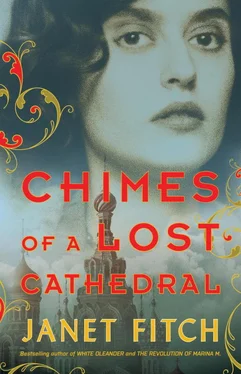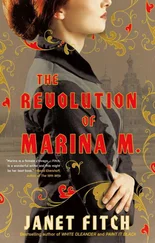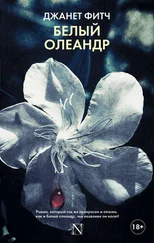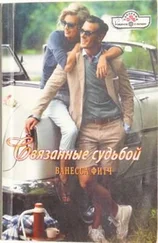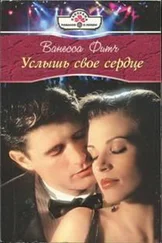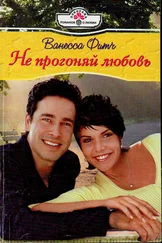Genya and Marfa Yermilova, Antyushin, the sailors and soldiers, propagandists and journalists, smoked, argued, rubbed their faces, trying to anticipate the next step. Marfa Yermilova in her wooden-jawed voice, declared, “They’ve taken Ufa, that’s the main thing. It’s not the first time we’ve faced this.”
“But which way will the Whites head?” asked one of the propagandists. “Will they try to retake Izhevsk?”
We stared at the map as if it were a crystal ball.
“We should go straight to Glazov,” said Grigory from Krasnaya Gazeta . “See what’s happening.” Obviously he wanted to get as close to the action as he could, and damn the fate of the agit-train.
“Maybe we’ll send you ahead to reconnoiter.” The sailor, Slava, settled down in a chair turned backward, took out his cigarette makings. “I’ve got to think of all these duffers.” He waved at the rest of us. “This train’d be a catch for Gaida. Imagine those headlines back in Omsk. That’d be some agitprop.”
Everyone was waiting to see what Marfa Yermilova would say, but she hadn’t moved, she just kept looking at the map, weighing the possibilities.
Grigory said something about taking Slava up on his offer—though it was sheer braggadocio. They settled into the various chairs and benches, gazing up at the map as if the situation might change if they looked at it long enough, and began to discuss a course of action. Marfa Yermilova was right, it wasn’t the first time we had no idea where we were going. A bridge blown, a band of saboteurs, a town already in ruins. Sometimes we lost the telegraph completely.
“Ufa maybe?” said Kostya, more as a question. “We’d be right on the heels of the 25th.” The journalists were dying to see Chapaev in action, their heroic leader—there were already songs about him.
“We could,” Genya said, sitting on the table, one foot propped on the bench. “Do some agitprop, make sure the locals will feed the soldiers when the 5th Army gets there.” Another red tack.
“Perm was our destination,” said Antyushin. “Then across to Ekaterinburg if the 2nd gets that far.”
Behind the Urals. It frightened me, the point of no return. I waited as long as I could, but it didn’t look like they were going to reach an agreement anytime soon. My guess was that we’d end up sleeping on a siding here in Izhevsk. Whether it was Ufa or Glazov or Perm, I hoped Marfa Yermilova and Genya decided to stay away from the worst of it, that we would just go on bringing the Soviet message to peasants behind the lines and avoid being attacked by them. They looked on all of us, Red or White, as invaders. And I prayed that we wouldn’t cross the Urals.
Which will you protect, the revolution or your pregnant wife? I remembered Marfa Yermilova asking Genya.
Overcome with fatigue and the heat and my immensity, my roiling guts, I staggered down to our compartment, peed in a chamber pot, and lay down on the bottom bunk. I tried propping myself up, tried lying on my side. I wished I could have gone up to the top bunk, more air, but I could no more have climbed there than fly.
There was not a single position in which I could lie in comfort. A peasant woman in one of those towns had told me the heartburn meant the baby would be born with a full head of hair. A boy, she predicted, as had Korsakova. Iskra. It meant Spark . A revolutionary name for a child of the revolution. How Genya loved to talk to him, lying with his head in my lap and his ear pressed to my giant belly. He looked like a boy himself, making up poems, telling him how he would march through Moscow on his daddy’s shoulders. They would be so tall the domes would look like toadstools, so high that Iskra would have to duck so he wouldn’t bump his head on the clouds.
This was the way I liked Genya best—silly, tender Genya with all those sounds in his head. I wished he’d decide whether it was Ufa or Perm and come back here—though to do what? I didn’t know. I wished I had a woman friend on the train, but everyone was busy, and aside from Matvei, and Slava, I’d made no friends here. I knew I didn’t belong, try as I might to be useful. I was just dead weight—not journalist, or soldier, or actor, just an awkward body to step around. My loneliness and irritation blended together with the terrible buzz of the cicadas outside through the lowered window, so loud I could hear nothing else. Though I knew if I could hear, I wouldn’t want to. I knew what I was missing, actors in the next compartment arguing over Meyerhold or Ibsen, playing poker, squabbling over missing belongings, fast fornications, drunken arguments when someone got hold of a bit of local samogon, all the topics they pursued when out of earshot of the soldiers and the sober propagandists. That and the heat and my head and the heartburn all combined into one huge ball of misery.
I wadded my sheepskin together with Genya’s coat into a bolster and propped myself into a seated position that was halfway comfortable. I’d just begun to nod off when I woke, urgently sick, and vomited into the chamber pot. How sorry I felt for those little cabbage pies, they had been so good! Blubbering like an infant. Why hadn’t I realized how hard this was going to get? Normally I didn’t allow myself the indulgence of self-pity, but with no one around to notice that I wasn’t the stoic I pretended to be, I didn’t bother to stop myself. Damn Genya! Damn the Red October ! I wished I’d never seen either one of them. Why didn’t I have more sense? Surely Genya must have known it was no place for a woman about to bear a child. Everyone hated me on this train, no one wanted me here. Couldn’t he have known it would be like this? How jealous everyone would be of him? Why couldn’t he have had a scrap of sense?
I always thought other people knew things, that was my weakness. Kolya, Genya, my father. And then I was brutally disappointed—over things I should have known myself.
Things I did know, and pushed aside.
I rinsed the chamber pot with water and threw the stinking contents out the window.
It was not just the pregnancy but the flu. My misery was complete. I didn’t bother even coming out of the car now when we stopped to deliver our Soviet message, our revolutionary passion play. I felt sick and peevish. The only one I wanted near me was Genya. I wanted him to recite poems for me, and rub my back, and tell me he loved me—and not bring me up to date on the progress of Chapaev and the 5th Army, Ufa and Perm, the gift of a whole goat someone gave us. He brought some in for me, but the smell of it—I made him take it outside. Everything smelled awful, my dirty hair, my own body. At one stop he tenderly washed my hair in hot water from the boiler. I wished I could have just crawled into it.
I lay in a thin nightdress in my bunk and dreamed one bad dream after another. I dreamed I was back at school—that the Whites were using it as a headquarters. They’d won the war, and now we would have to pay the price. They herded us all into the ballroom: Mina, and Lisa Podharzhevskaya, and Natalya Ionian, I didn’t know she’d gone there too. Magda Ionian was there, though not Varvara—strange. And they were searching all the girls. I knew it was me they were looking for. Magda had told them I was there, Magda the spy.
Then a woman, an old woman with blue eyes, beckoned me silently to a wall between the windows, where she opened a door, a hidden door. How could there be a door on the outside wall? But she popped it open and helped me through, closing it after me. It was dark, but I found a metal door, and stairs going down, dripping and wet, a maze of corridors with pipes running overhead. I got lost. Which way to Bolshaya Morskaya? The Whites were overhead, they knew I was here somewhere. If I kept going down, eventually there must be a door, an exit… except that water lapped the bottom stairs. The basement had flooded. Rats swam in it, trying to get away.
Читать дальше
